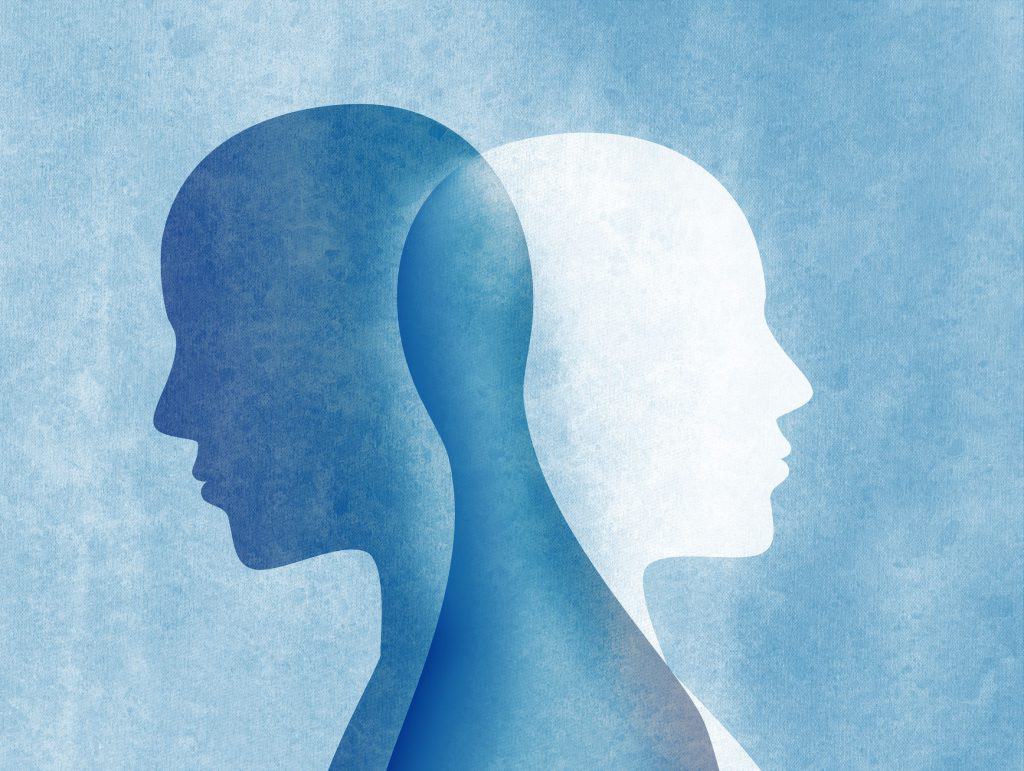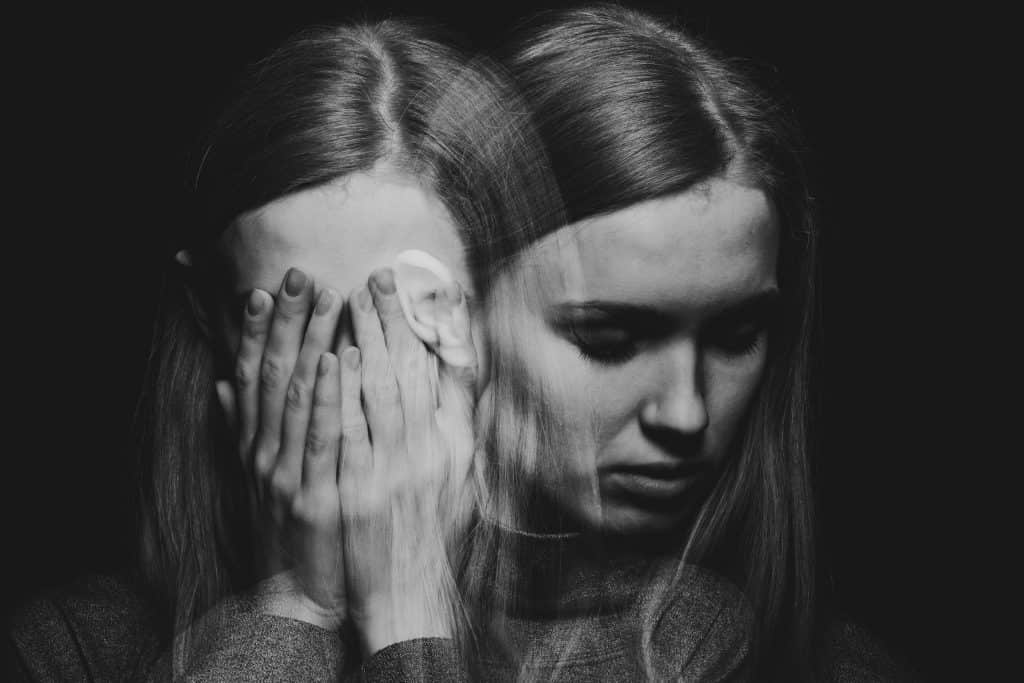Bipolar vs Unipolar, Signs, Symptoms, and Treatment, a Guide
Posted by Prescription Hope - See Editorial Guidelines (Last Updated On: Mon Mar 13 2023)
Looking to understand the differences and similarities between bipolar vs unipolar?
Here’s the guide on both bipolar and unipolar in terms of occurrence, hereditary potential, behavior, symptoms, treatment, and more. First, let’s give you the quick reference guide, then we’ll get into more details.
Bipolar vs Unipolar? The following table outlines the main differences:
| Bipolar | Unipolar | |
| What | Genetic mood disorder – depression and manic episodes | Genetic mood disorder – close to depression |
| Occurrence | 2.5% of the US Population | In the US 7% of people in a given year |
| Heritability | High | Low |
| Diagnosis reliability | High | Low |
| Treatment | Antidepressants and Psychotherapy | Mood stabilizers and Psychotherapy |
Learn more about mood disorders from the Cleveland Clinic.
Let’s start with giving an overview of what bipolar and unipolar are, then we’ll go on to discuss other factors.

Bipolar vs Unipolar – What are They?

Both bipolar and unipolar are two mental health disorders.
Unipolar is closely connected with depression. On the other hand, bipolar disorder causes extreme fluctuations in mood that include mania (emotional highs) and depression.
Both these medical conditions share the same symptoms with three main differences – as follows:
- Bipolar depression is more episodic than unipolar
- Bipolar depression is always on the edge of mania
- Due to the mania risk, bipolar depression treatment is different than unipolar depression treatment.
Bipolar vs Unipolar – Occurrence
The occurrence of bipolar is less common when compared to unipolar. It affects roughly 2.5% of the American population, which equates to about 5.7 million Americans.
In contrast, unipolar depression affects just over 17 million Americans in a year, which is about 7% of the U.S population.
Bipolar vs Unipolar – Heritability
The heritability of bipolar disorder is higher than that of the heritability of unipolar.
The heritability of bipolar runs in the range of 85%. Surprisingly bipolar disorder is one of the most heritable conditions in psychiatry.
This high heritability means that one’s environmental factors have less importance when it comes to the onset of bipolar disorder.
The heritability or genetic risk for unipolar is lesser when compared to that of bipolar. The heritability of unipolar runs in the range of 30%-40%.
This means that in a collection of people, this heritability will only affect one-third of the variants. However, if the unipolar is recurrent or commonly recurrent, then this heritability would increase to around 66%.
Bipolar vs Unipolar – Diagnosis
In general, diagnosing bipolar or unipolar is difficult, as each of these conditions shares some symptoms but have different complications.
When focusing on just diagnosing bipolar disorder, bipolar type 2 is relatively more difficult to diagnose than bipolar type 1.
Bipolar type 1 is diagnosed by the occurrence of mania. So, bipolar type 1 can be relatively difficult to diagnose in the absence of mania.
On the other hand, bipolar type 2 is difficult to diagnose often when compared to bipolar type 1. This is because type 2 bipolar must include episodes of hypomania along with depressive episodes.
Bipolar can look very similar to depression, so the reliability of one’s diagnosis can often be questioned.
A misdiagnosis can cause the doctor to prescribe the wrong medication. This can result one’s condition and mental state worsening over time.
Bipolar vs Unipolar – Characterization
According to the American Psychiatric Association, there are distinct categories of bipolar disorder:
- Bipolar I disorder – Patients in this stage of bipolar will have dramatic mood swings with more severe manic episodes. They can often feel uncomfortably irritable during their manic episodes. Their depressive state can often leave them feeling hopeless.
- Bipolar II disorder – Patients with this stage still have manic episodes but they are less severe. Patients are more likely to experience more depressive symptoms during this stage than in stage 1.
- Cyclothymic Disorder – People with this disorder often experience fairly constant mood swings but they are less severe, so they cannot be diagnosed as bipolar.
On the other hand, unipolar is characterized only by the combination of two types of symptoms:
- Neurovegetative – These symptoms often include insomnia, having a decreased appetite, and weight loss.
- Emotional cognitive – Emotional cognitive refers to the link between how emotions are thought about in everyday life and how they are investigated psychologically. Symptoms often include suicidal thoughts, decreased concentration, and the feeling of worthlessness.

Bipolar vs Unipolar – Symptoms
Here’s a summary of the symptoms for both bipolar and unipolar.
Bipolar

- Excessively “high,” euphoric mood
- Extreme irritability
- Less need for sleep or sleeping for a few hours without feeling tired
- Racing thoughts
- Fast speech
- Finds it difficult to focus or concentrate on anything
- Gets agitated often
- Impulsive behaviors like spending sprees
- Increased energy and involvement of activities
- High confidence
- Restlessness
- Increased sexual drive
- Abuse of drugs, such as cocaine, alcohol, and sleeping medications
- Intrusive, provocative, or aggressive behavior.
Unipolar
- Depressed mood and talks
- Extreme sadness for no reason
- Lack of interest in activities or anything that was once entertaining
- Apathy and low energy levels
- Difficulties in focusing from time to time
- Preferring to be alone
- Withdrawing from family and friends or get-togethers
- Feeling guilty
- Feeling helpless
- Not being able to sleep or sleeping too much
- Suicidal thoughts or feelings
Unexpected symptoms of both bipolar and unipolar can be either sadness or irritability. These can be unexpected and confusing symptoms and can actually be hard to identify unless you are very observant, or trained professional.
Bipolar vs Unipolar – Treatment
The main treatment for bipolar is psychotherapy followed by medications. The only three FDA-approved medications for bipolar include the combination of olanzapine and fluoxetine, quetiapine, and lurasidone.
Mood stabilizers that are effective for maintenance seem to be effective for the treatment of depression. Read more about how to help overcome anxiety and depression.
Some medications such as lithium and lamotrigine are also available for the treatment of bipolar.
Some of the medications listed above are considered antidepressants. But it is important to note that antidepressants should not be taken along to treat bipolar disorder. Taking antidepressants without a mood stabilizer for bipolar can lead to an increased frequency of maniac and depressive episodes.
Your doctor should provide you with a prescription for a mood stabilizer if they have prescribed you an antidepressant to treat your bipolar disorder.
The main treatment for unipolar is antidepressants, followed by psychotherapy.
There are several antidepressants approved by the US Food and Drug Administration (FDA) for the treatment of unipolar.
Selective serotonin reuptake inhibitors (SSRIs) and serotonin/norepinephrine reuptake inhibitors (SNRIs) are the most commonly prescribed antidepressants.
Tricyclic antidepressants and monoamine oxidase inhibitors (MAOIs) are two types of antidepressants that are becoming less popular because of tolerance. See more about the side effects of antidepressants.
Another factor that affects mood significantly is a person’s level of activity and exercise. Read more about how exercise can help depression.

Conclusion
We hope this has provided you with a helpful guide on bipolar vs unipolar. If you have questions or concerns, we would always recommend consulting with your doctor for further help and advice.
If you’re having trouble affording any of your medications, then Prescription Hope may be able to help. Enroll with us and see if you qualify to pay only $60.00 a month through Prescription Hope’s medication access service for each of your medications.

